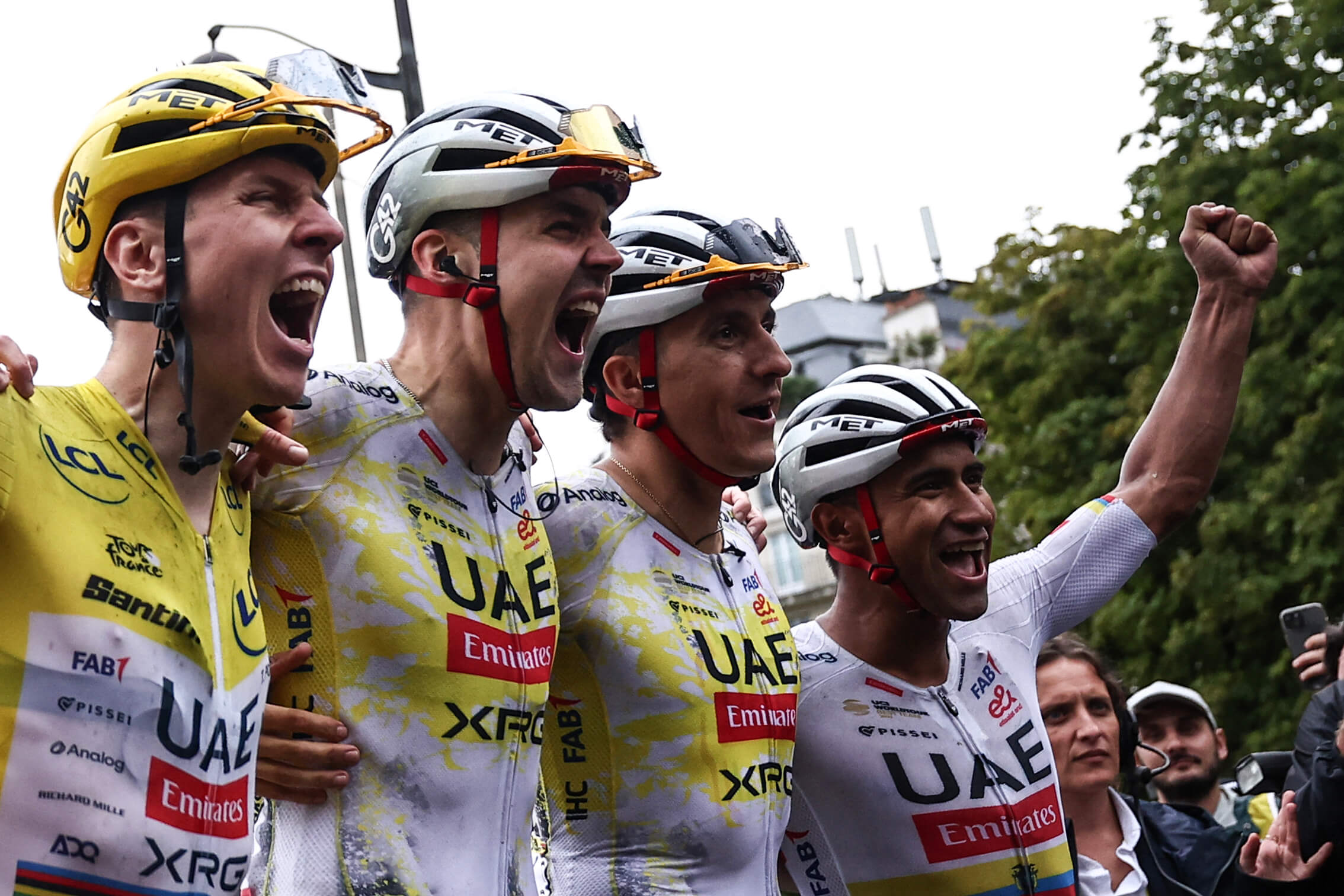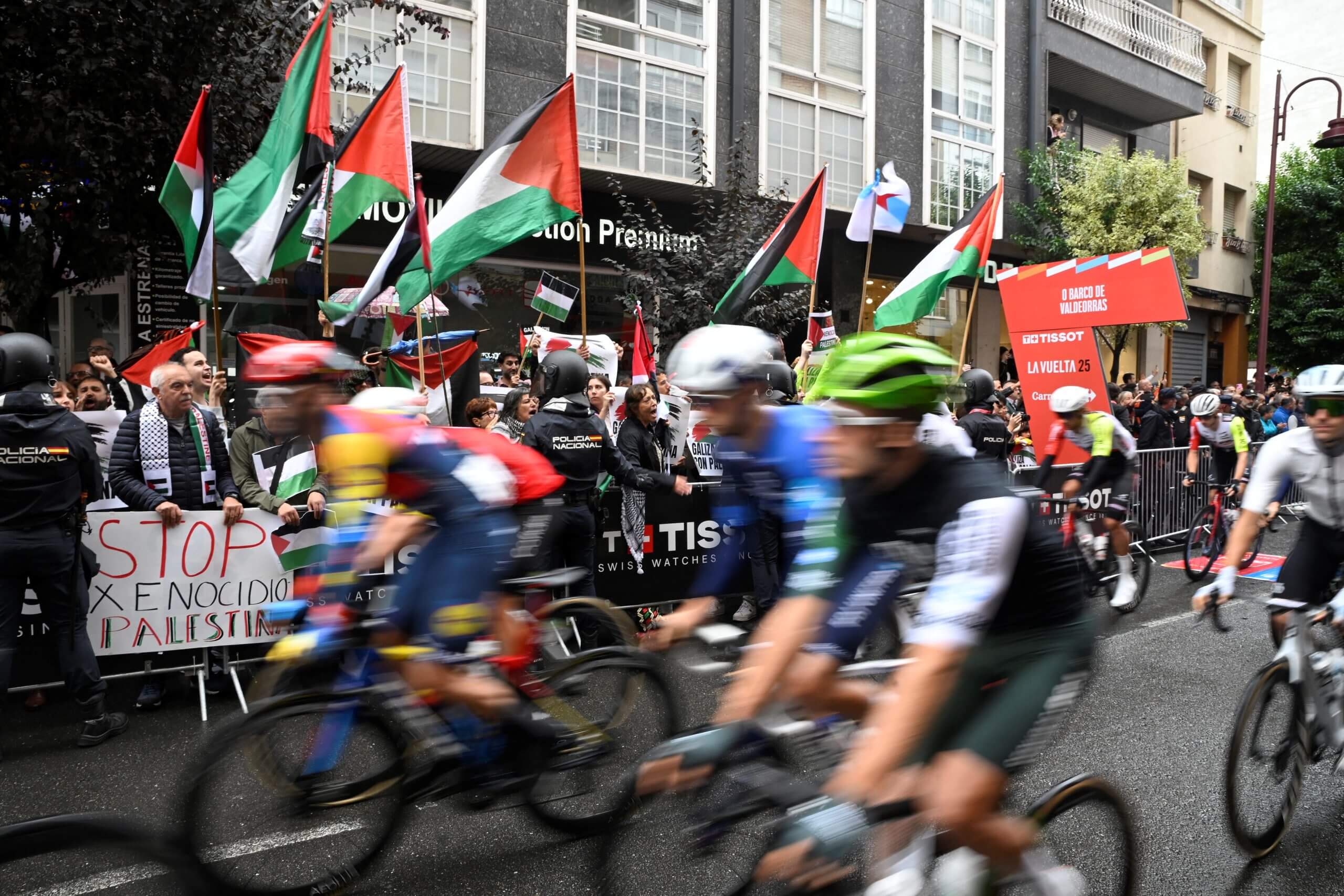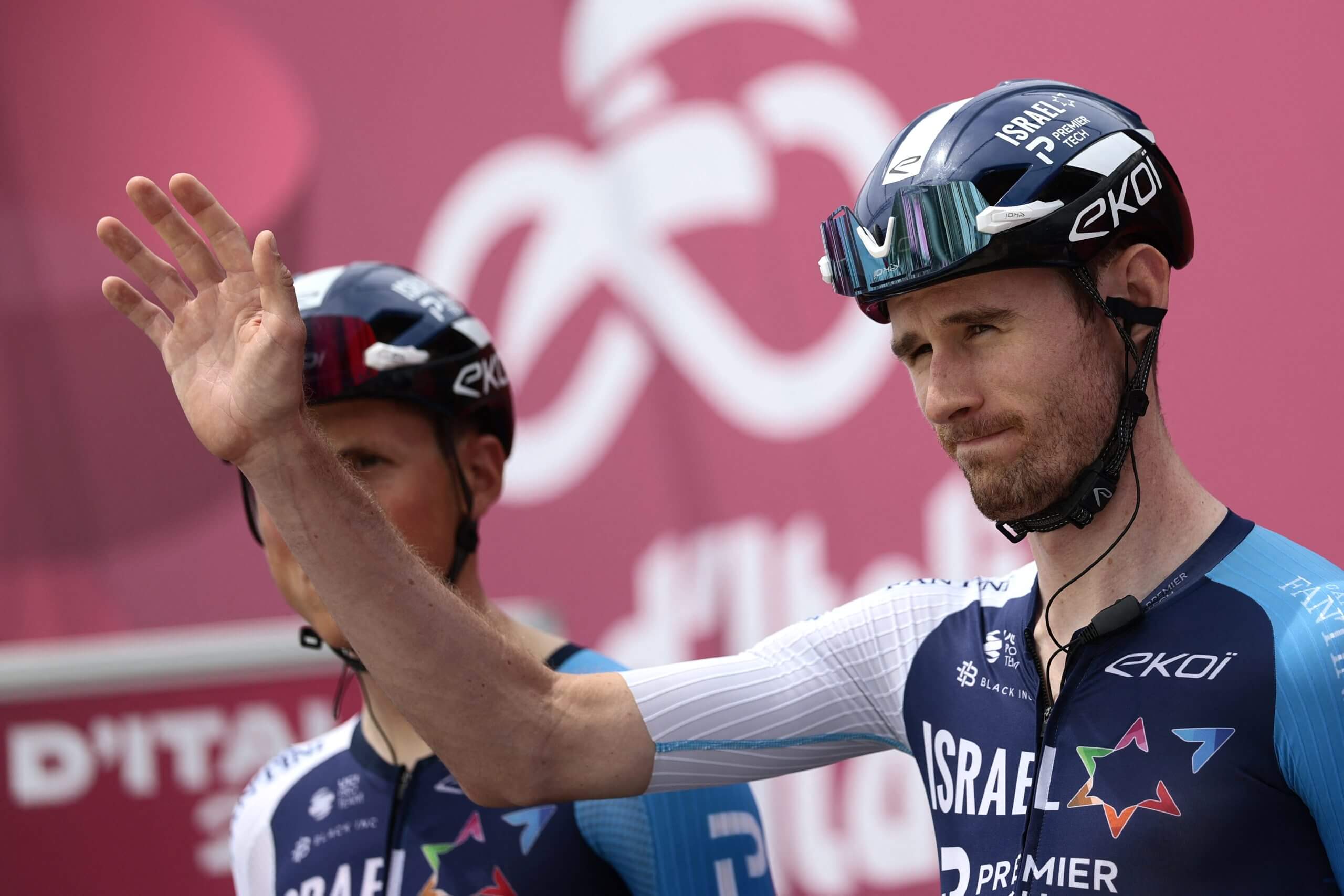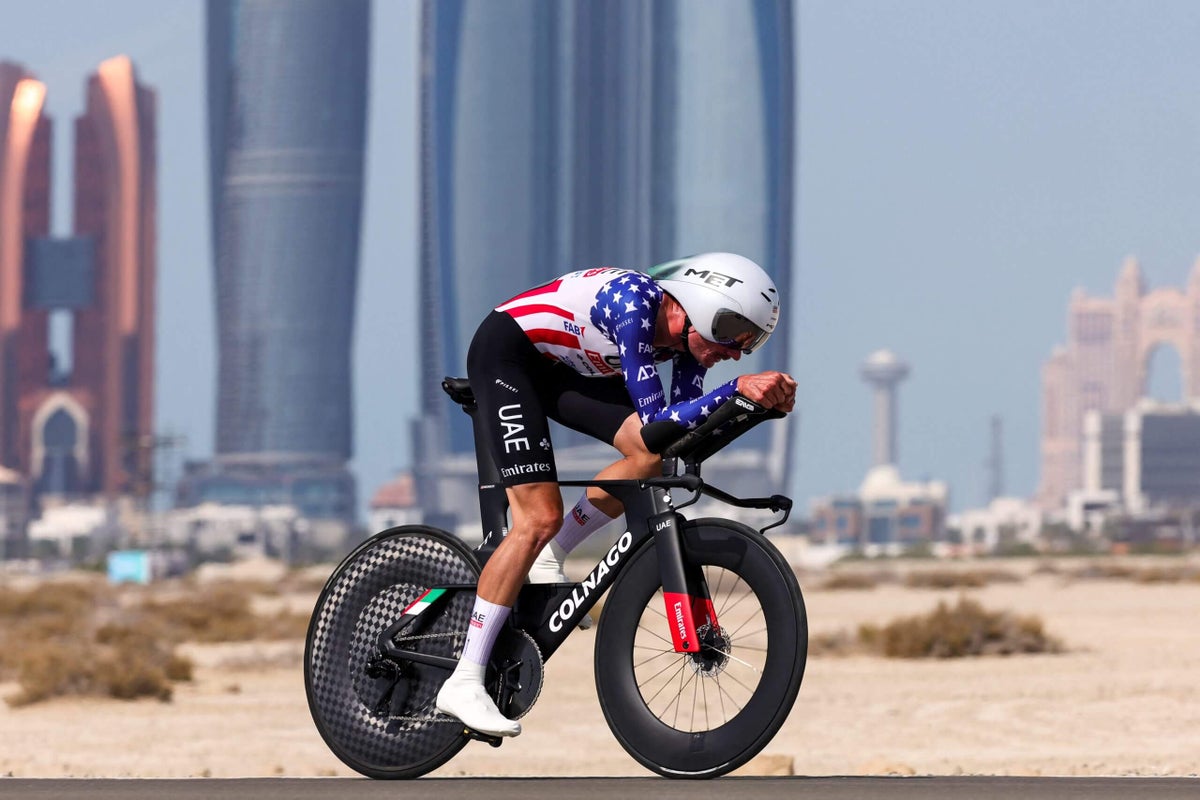On Saturday November 1, the Abu Dhabi Cycling Club unveiled a life-sized gold statue of Tadej Pogacar.
Built to mark a triumphant season in which the sport’s predominant superstar had won the Tour de France, road-race World Championship and three one-day Monuments, it depicted the UAE Team Emirates rider performing his trademark celebratory bow. Pogacar himself visited the United Arab Emirates’ capital to unveil it, beaming at the sight.
Six days earlier, the Sudanese city of El-Fasher had fallen to the paramilitary RSF (Rapid Support Forces). Led by General Mohamed Hamdan Dagalo Musa, known as Hemedti, the RSF has been accused of serious war crimes by the United Nations, which is investigating allegations of genocide.
Though it is denied by the UAE, the international diplomatic community says it has overwhelming evidence that Hemedti’s forces have been funded by the Gulf state, with experts citing the UAE’s strategic interests in Sudan’s access to the Red Sea, a major shipping lane for global trade, agricultural potential and vast reserves of gold mines.
In a report for the Chatham House think tank last October, academics Ahmed Soliman and Dr Suliman Baldo wrote: “The UAE continues to benefit from Sudan’s conflict gold, as the enforcement of restrictions on artisanal gold imports from countries where there is war, or where gold is controlled by armed groups, remains limited.”
The optics of Pogacar’s golden statue went largely unnoticed.
Asked by reporters about the UAE’s human-rights record after stage 17 of this summer’s Tour, Pogacar replied: “If you go there, you’ll see how the sport is growing. Kids love us, the locals love us when we ride with them. The sport is growing in the UAE, which I guess is why they have the team — to promote a healthy lifestyle.”
Within 10 minutes of crossing the finish line in Paris five days later to confirm his fourth Tour victory in six years, Pogacar’s teammates locked arms around the yellow jersey, chanting in unison, “U-A-E! U-A-E!”

Tadej Pogacar celebrates his 2025 Tour de France win with some of his UAE teammates (Anne-Christine Poujoulat/AFP via Getty Images)
Memories and situations like these are the reality of cycling’s uneasy relationship with sportswashing.
With teams lacking significant broadcast revenues — the main source of income in most other sports — squads rely on sponsorship, selling their team names, the colours of their jerseys and virtually anything else to the highest bidder.
The modern peloton is an unlikely and unequal combination of shampoo brands, supermarkets, manufacturing conglomerates and nation states. Alongside UAE Team Emirates, teams which are de facto advertising boards for countries include Israel-Premier Tech, Bahrain Victorious, Astana (named after the Kazakhstani capital) and Jayco-AlUla (who are promoting the ancient Saudi Arabian city which makes up the second part of their name).
Given the scenes of this autumn’s Vuelta a Espana, in which the presence of the Israel-Premier Tech team led to mass pro-Palestinian protests across Spain, curtailing three of its stages and disrupting several more, it is fair to ask whether the UAE’s actions in Sudan might spur similar activism when the 2026 season starts in the spring.
Those actions have already resulted in protests directed at Premier League club Manchester City, owned by Sheikh Mansour, the UAE’s deputy prime minister and brother of its ruler, Mohamed bin Zayed.
Israel-Premier Tech (IPT) are already experiencing the repercussions of fan protest.
Though the team are not owned by the Israeli government, their co-owner Sylvan Adams has described himself as an “ambassador-at-large for the state of Israel”, and is a close friend of Benjamin Netanyahu, the country’s prime minister. During the Vuelta, IPT’s riders privately expressed their deep unease at the situation, fearing for their safety amid protestors’ roadblocks, while the team’s sponsors grew increasingly uneasy with the increasing backlash against their participation.

The 2025 Vuelta a Espana saw mass pro-Palestinian protests across Spain (Mguel Riopa/AFP via Getty Images)
Speaking publicly after the race ended in September, co-title sponsors Premier Tech, a Canadian multinational, appealed for the team to undergo a significant rebrand, removing the word “Israel” from their name and adopting a new racing identity. IPT’s leadership agreed, with Adams also stepping back from his day-to-day role — but ultimately, it was not enough to keep Premier Tech onboard.
“After multiple discussions with the team and careful assessment of all relevant circumstances, Premier Tech has decided to step down as co-title sponsor of the team taking effect immediately,” a statement from the company read. “The core reason for Premier Tech to sponsor the team has been overshadowed to a point where it has become untenable for us to continue as a sponsor.”
The team’s issues were heightened in October by what appeared to be the first public statement from one of their riders that he was uncomfortable representing the squad from an ethical perspective.
Writing on social media, three weeks after the United Nations declared the situation with Israeli forces’ operations in Gaza a genocide, IPT’s star climber Derek Gee — a Canadian who came fourth at this year’s Giro d’Italia — explained why he had sought to cut short his deal with the team.
“I terminated my contract with just cause, as is every person’s right when they are unable to continue performing their work under the existing circumstances,” Gee said. “This decision was not taken lightly — it followed an irreparable relationship with the team principal, as well as serious concerns related to racing for the team, both from a safety and personal-belief standpoint that weighed heavily on my conscience.
“I understand the team sees it differently. However, I am now facing what I understand to be a damages claim said to exceed approximately €30million (£26.5m/$34.8m at current rates) — for doing nothing more than exercising my fundamental rights as a professional and a person.”
An IPT spokesperson told The Athletic: “Derek Gee’s contract termination case is currently before the UCI Arbitrary Board. For this reason, the team is unable to comment on the matter.”
But will Gee’s case be the first of several? Potentially, down the line, outside IPT too? His case highlights cycling’s awkward dependency complex — a sport in which the deals that keep teams alive can also bring them down.

Canadian rider Derek Gee is seeking to terminate his IPT contract (Luca Bettini/AFP via Getty Images)
Without these multi-million dollar sponsors, several teams would face certain bankruptcy. As just one example, Lampre, the also-ran Italian squad that became UAE Team Emirates in December 2016, was in major financial difficulty before receiving that Gulf investment.
One team — Arkea-B&B Hotels — has already gone out of business this winter. Two more, Lotto and Intermarche-Wanty, have been forced into a messy merger filled with financial complexities and contract disputes. Alpecin-Deceuninck, probably the top sprinting team in the peloton, acknowledged to The Athletic in July that their long-term existence was not sustainable without finding a new title sponsor. They are still looking.
And in cycling, the situation is such that even the backing of a nation-state does not guarantee a team simple survival, never mind success.
Jayco-AlUla, who are registered in Australia, signed a co-title sponsorship deal with the Saudi tourist board, but missed next season’s initial license deadline due to absent bank guarantees. This has since been resolved, and their men’s and women’s squads are now expected to compete in the WorldTour in 2026. XDS-Astana, formerly operated by a state-owned Kazakhstani conglomerate, faced being wound up by team management before investment from Chinese bike manufacturer XDS ahead of the 2025 season, and a remarkable improvement in form then helped them avoid relegation.
Funding issues are not going to disappear for many teams in 2026. If anything, they will be heightened as the need to spend to build a ‘superteam’ capable of competing in Grand Tours has become increasingly apparent.
Solutions? The obvious one is to tear down the sport’s funding model and rebuild it anew, but the all-powerful Amaury Sport Organisation (ASO), the family-run body that organises the Tour, Vuelta and several of the top one-day races has shown little interest in renegotiating any deal that would see them cede any aspect of their control.
Another proposed funding model, called One Cycling, is backed by Saudi Arabian money, a country with its own long list of human rights violations. It might solve some problems, but not these particular ones.
The UCI, cycling’s governing body, is not interested in regulating investment in the manner of North American sports leagues such as the NFL and NBA, recognising both the sport’s historic international outlook and its inherent financial fragility.
This is the bleak reality which has underpinned the first half of cycling’s off-season.
Shorn of options, teams are sitting on their hands, waiting for a silver-bullet investor. Increasingly, they resemble fool’s gold.
